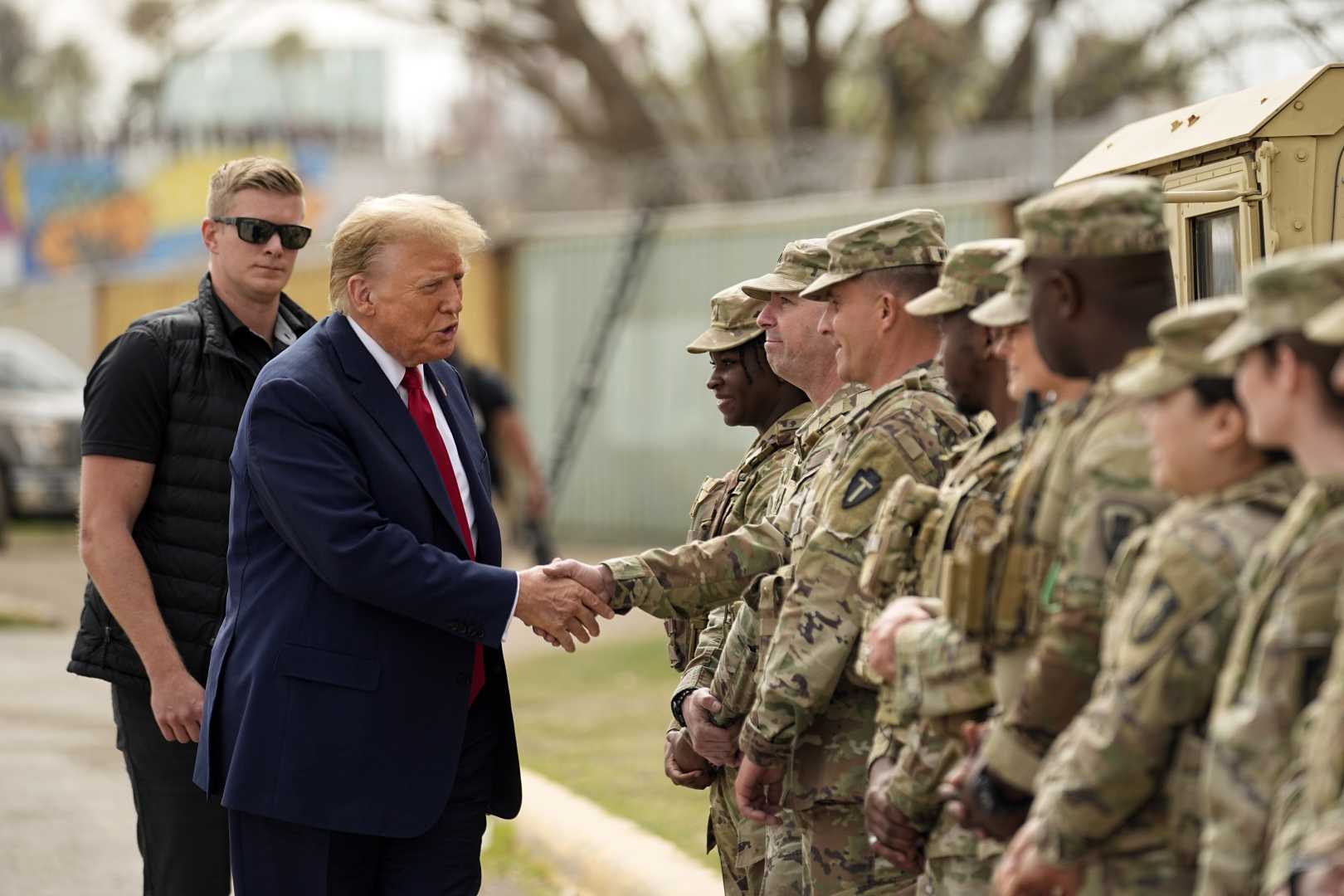Politics
Trump’s Military Involvement in Immigration Operations Raises Concerns

WASHINGTON, D.C. — President Donald Trump‘s administration is reportedly intensifying the use of the U.S. military for domestic law enforcement related to immigration. An internal memo from the Department of Homeland Security (DHS) suggests plans to integrate military forces into operations beyond the U.S.-Mexico border.
The memo, obtained by The New Republic, outlines discussions among top DHS and Pentagon officials about escalating military involvement in addressing illegal immigration in urban areas. It recommends that the Defense Department take an active role in combatting perceived threats from transnational gangs and cartels, likening them to terrorists that might operate freely within the United States.
Experts have expressed alarm over the implications of this memo. Carrie Lee, senior fellow at the German Marshall Fund, stated, “The military is the most powerful, coercive tool our country has. We don’t want the military doing law enforcement. It absolutely undermines the rule of law.”
Authored by Philip Hegseth, a DHS liaison officer to the Defense Department, the memo serves to guide the agenda for a July 21 meeting between high-ranking officials from both agencies. Hegseth aims to promote a robust discussion on enhancing national security through military involvement.
The meeting’s participants include Defense Secretary Pete Hegseth, Joint Chiefs chairman Dan Caine, and NORTHCOM Commander Gregory Guillot, highlighting the meeting’s significance at the highest levels of government.
“It’s disturbing to see DHS officials pressuring the U.S. military to turn its focus inward even further,” said Joseph Nunn from the Brennan Center. Nunn conveyed that a greater military presence in domestic law enforcement could become prevalent under the current administration’s direction.
The memo emphasizes the urgency that military leaders must feel regarding homeland defense, suggesting that increased collaboration between DHS and the Department of Defense (DoD) is vital for addressing illegal immigration. Hegseth’s message to Pentagon officials is that the DHS seeks to deepen military involvement in immigration enforcement.
As the memo outlines potential areas for collaboration, it raises questions about a perceived normalization of military engagement in domestic law enforcement activities. Experts fear that this trend risks turning military operations into a regular feature of immigration control, a step that could irrevocably alter the balance between civil liberties and national security.
The discussions hinted at in the memo also came alongside new funding for Immigration and Customs Enforcement (ICE), raising concerns about how military personnel would be integrated into these operations. The memo concludes by positioning threats posed by criminal organizations alongside reference to Al Qaeda and ISIS, a comparison seen by experts as an inappropriate escalation that could lead to excessive use of force.
Experts advocate caution, as continued militarization of domestic affairs can jeopardize democracy and civil liberties. As discussions unfold, the implications for how the U.S. approaches immigration enforcement will likely come under scrutiny.












